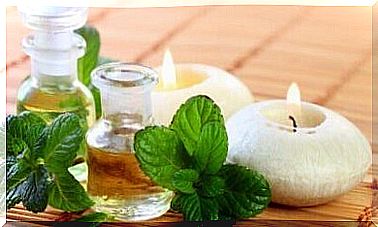4 Natural Remedies For Painful Arthritis
There are herbal remedies that help against joint pain. We have summarized the best four for you

Arthritis sufferers know how joint pain accompanies you through the day. However, Mother Nature has provided us with a few plants that can help relieve painful arthritis. We explain to you what they are and why they work.
Arthritis is not osteoarthritis!
Arthritis is an inflammatory joint disease. Please do not compare or confuse with “osteoarthritis”!
Arthrosis is joint wear and tear without inflammation, arthritis is always associated with inflammation of the joint! Typical symptoms of arthritis are, in addition to pain, warming of the affected joints, swelling and reddening of the affected area.
There are several causes of painful arthritis. The most common are: rheumatism, bacterial infections (for example after surgery) and gout.
However, all forms have one thing in common, pain, which is not only used in pharmacy tablets.
The following herbal remedies also bring relief:

Pineapple for painful arthritis
The pineapple contains the enzyme bromelain, which soothes inflammation and reduces swelling. Therefore, this active ingredient is often recommended after dental or oral surgery procedures.
In order to absorb the necessary amount of bromelain, you have to incorporate a lot of pineapple into your diet, but the active ingredient is also available in concentrated form in tablet form.
If you only occasionally suffer from joint problems and want to prevent inflammation and swelling, simply integrate pineapple products such as pineapple juice or fresh pineapple (please not sugared and only canned fruits without sugar!) In your daily menu.

Turmeric for painful arthritis
A spice that is rather uncommon in Germany also has an anti-inflammatory effect. It is turmeric, which is also called turmeric or incorrectly saffron root.
You usually get it ground as an exotic spice. Turmeric gives food an intense yellow color and is much cheaper than saffron. The taste is mildly spicy, which is why you can use it generously for seasoning against arthritis.
The anti-inflammatory effects in knee arthritis have even been confirmed by studies.

Ginger for painful arthritis
One component of ginger inhibits an enzyme that is active in the body when there is pain.
If this enzyme is inhibited, the pain is alleviated. The principle works like a painkiller, only a little more gentle on the stomach and more natural.
The components of ginger are particularly effective against muscle pain, but also with mild headaches and rheumatism, as ginger also has anti-inflammatory properties.
In combination with its analgesic effect, ginger is particularly popular in the treatment of rheumatism and arthritis, as it reduces pain and inhibits inflammation.
For a ginger tea, chop fresh ginger root or grate it with a vegetable grater. Now boil the ginger in water for about 10 minutes and then pour the stock through a sieve. Honey also has a healing effect, so you can use it to sweeten.
Drink the warm tea sip by sip.
Warning: ginger is not suitable for pregnant women and should not be used during pregnancy!
It is important that you prepare the ginger fresh and not use it as a powder. The effective essential oils are only completely preserved in fresh ginger!
It doesn’t matter whether you grate the ginger raw or cook it as tea. Ginger is also delicious when it is candied! The more the better.
Ginger tastes good with hearty meat dishes, vegetables and also with fruit and in desserts. Give it a try, ginger really helps!

Omega-3 fatty acids for painful arthritis
The anti-inflammatory potential of omega-3 fatty acids has been researched in studies and recommended for joint inflammation such as arthritis, rheumatism and also inflammatory bowel disease and asthma.
Omega-3 fatty acids are contained in linseed oil in a particularly good ratio of fatty acids. In contrast, olive oil, which has been widely praised by clever marketing, contains almost no omega-3 fatty acids.
Oils with high levels of omega-3 fatty acids are also: chia oil, hemp oil, walnut oil, rapeseed oil and soybean oil. Oily sea fish also contains omega-3 fatty acids, but in a significantly lower concentration than the vegetable oils mentioned above. In addition, omega 3 fatty acids lower blood pressure and blood lipids, which is why it can prevent hardening of the arteries.
It is not only the intake of such essential fatty acids through our food that is decisive, but also that the ratio of these fatty acids to one another is optimal.
The higher the proportion of omega3 fatty acids and the lower the proportion of omega6 fatty acids, the more optimal the oil.
Domestic linseed oil has the highest omega3 content (1: 4)! If you don’t like the intense taste, you can also use rapeseed oil (1: 2) (or walnut oil (1: 6) or soybean oil (1: 7)), which are much healthier in their fatty acid proportions than the widespread sunflower oil (1: 122! !!), corn oil (1:54) or peanut oil (1:32).









